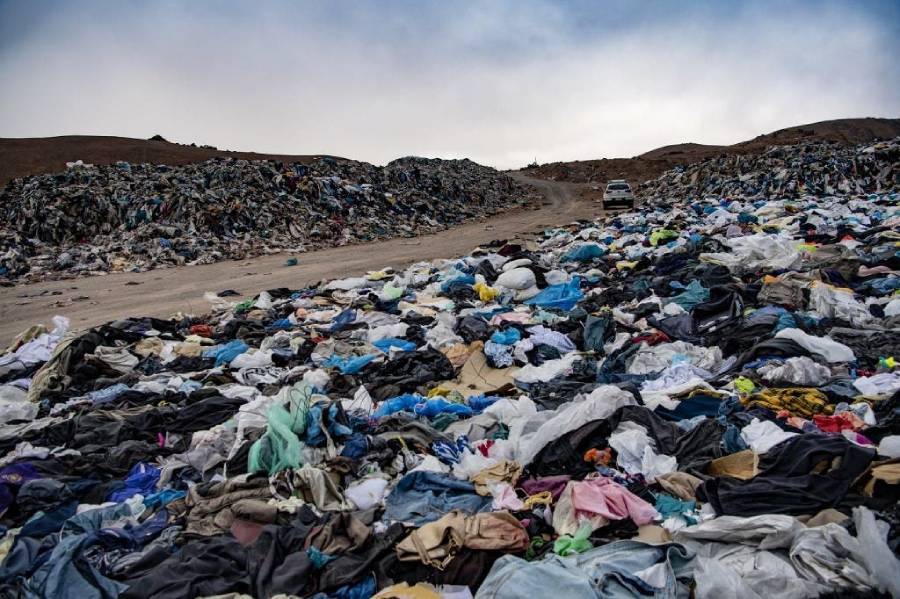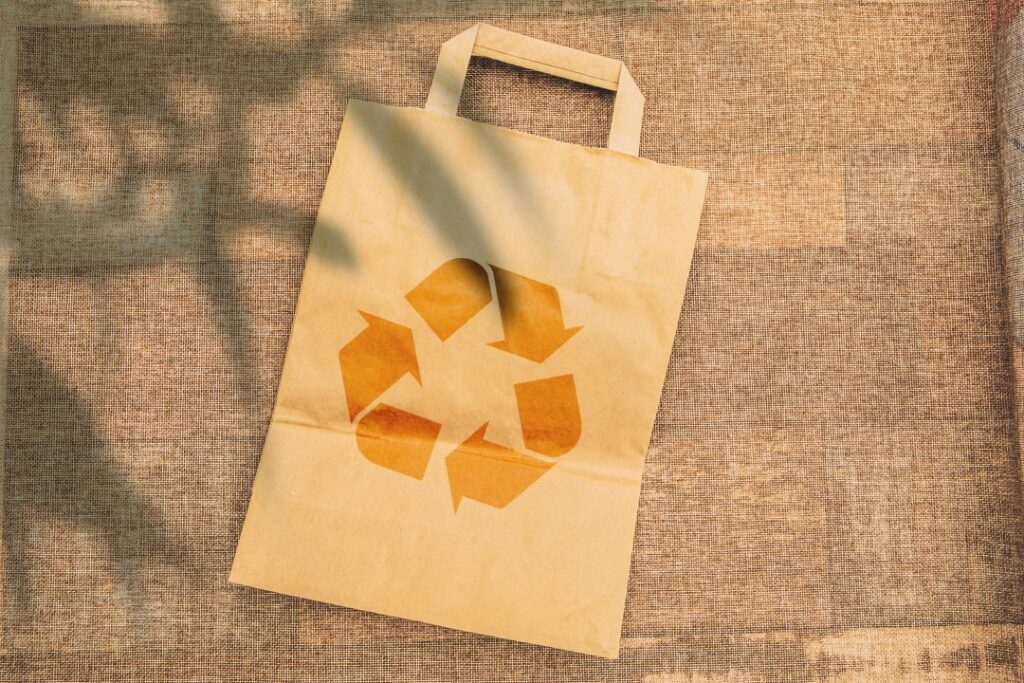We have probably bought more than once something that we regretted later, either because we never used it or because it was outdated for our lifestyle. How many times have we been tempted to buy the latest domestic appliance just because it was eye-catching and on sale? Not to mention all the times we’ve bought a party dress with no occasion in sight, just because it was a cheap bargain.
We all have succumbed to the impulse to buy something we didn’t really need. Simply look at how many of your clothes are still unworn or how many times you’ve used the kitchen items you saw on TV.
So is it really possible to buy nothing at all? Well, BND, or Buy Nothing Day, is a date that invites us to try, at least for that day. What’s even more curious is that it is celebrated on the same day as Black Friday, one of the most consuming dates of the year in the world.
Read here to find out more about this day.

The atrocious heritage of Black Friday
We all know this day very well. This day represents the climax of shopping, even outside the United States. It’s impossible to avoid thinking about the huge discounts and the out-of-control fights that headline the news.
However, this date, which is supposed to be a benefit for the consumer, actually hides a lot of problems under the rug.
Some of the issues can be mentioned without going too deeply into the subject. For example, the impact on small retailers who cannot afford such large sales as international chains, or the repercussions on our mental health, encouraging obsession and cravings for a happiness that, since it is material, only lasts for a few moments.

Black Friday is a synonym of uncontrolled consumption. Events like this encourage people to buy things they don’t really need. Beyond being a useless expense for the consumer, it generates an unsustainable shopping habit that is destroying the world. It is not just a question of buying what we need to cover our basic needs, but a constant desire, characteristic of materialism, to acquire, discard and buy again.
Environmental impact of our purchases
The latest UN report on global waste generation provides alarming figures. Worldwide, more than 2 billion tonnes of municipal solid waste is produced every year. This type of waste is generated wherever in the world there is a human settlement, so we are all responsible for it.
We generate so much rubbish that it could circle the Earth’s equator – literally, the Earth’s great circle – about 25 times.
Our waste could travel from the moon to the earth and back, or even further. Every decision, every action we take on a daily basis has an effect on the accumulation of waste.
This waste rate is determined by the way we buy, use and discard, leading to the amount of energy and resources we use. Today, we are using the earth’s resources twice as fast as they can regenerate. We are depleting resources at an alarming rate, and this is because we produce and consume more than we need.

Consumption is deeply rooted in society. Material goods have become part of our identity. How, then, do we stop buying? What can we do? The idea is to gradually restructure our habits, and this is where World No Shopping Day comes in.
A shopping-free day
The event was founded by Canadian artist Ted Dave in 1992, and was first held in Vancouver in September of that year. However, it was in 1997 that the celebration was moved to the last Friday in November, just one day after Thanksgiving, coinciding with Black Friday. This date was chosen in recognition of the drastic contrast between the two celebrations: one day dedicated to gratitude followed by another that is marked by chaos, greed and superficiality.

Thus, this date was born as a call against the consumerism, especially that which takes place in the pre-Christmas period.
From this point of view, it is presented as an alternative to Black Friday, revealing the waste and mass madness caused by the significant discounts of the big commercial chains. Its aim is to denounce the current model of overproduction and over-consumption, which impacts not only the planet but also our mental health.
The initiative is thus seen as an anti-capitalist, anti-consumerist and environmental manifesto for a more sustainable economy.
How to celebrate this day?
Due to various individual initiatives and the promotion of AdBusters, it is now celebrated in 65 countries around the world. Basically, participants avoid buying anything during the event, demonstrating the power of the consumer.
There are no specific guidelines for the celebration. What is important is not to succumb to the impulse to buy during the 24 hours of Black Friday.
Restrictions vary in severity depending on the individual and his or her will. Some people will buy nothing at all, neither food nor objects; others will choose not to buy things they don’t really need. For this reason, critics argue that a single day will not make any difference, as after this period, many will return to their usual habits. But that is not the purpose.
Actually, the aim of this celebration is quite the opposite. It is not about redeeming yourself in a single day for all the impulsive purchases you have made throughout the year.
Rather than just avoiding shopping on that day, it is an occasion to reflect on our actions, consider alternatives to mass consumption, rethink our choices and become aware of our impact on the Earth.

It is a moment of introspection, but also a moment of community. People organise awareness-raising activities, marches, clothes or book exchanges, and walks, among others. It is therefore an ideal day to explore our lives outside of consumerism and materialism. Go for walks outdoors, enjoy family time, take a break and enjoy a day without the pressure and hustle and bustle that peaks precisely on Black Friday.
Can we be happy with what we already have?
This is certainly a question we should all be asking ourselves.
With material goods becoming part of our identity and measure of success, this question is relevant.
For this reason, The Buy Nothing Day is important. It invites us to rethink the economic model on which society is based, to reflect on the destruction that capitalism generates and our role in the midst of it.
We need an economy that has sustainability as a pillar; an economy that reduces waste instead of generating it, which builds things that last instead of a programmed deterioration. We need to take a more respectful and conscious attitude towards the planet, changing our purchasing habits to consume and produce less.
Buying too much stuff means we don’t get to use it all. We not only waste money, we waste energy and scarce resources, and we generate too much waste.
Being aware of our actions not only has an impact on our environmental footprint, but also on our wallet. Through conscious spending and greater financial responsibility, we would be able to live more fully, with fewer worries and thus be happier: a simpler life, with less dependence on material possessions and a focus on what really matters.
One interesting perspective on the subject is offered by the book ‘The Day the World Stops Shopping’ by J.B. Mackinnon. In it, Mackinnon shows us what the world would be like if shopping stopped being our main role and if we were not consumers driven by the need to have things. Not in order to give it up overnight – which, besides being impossible, would mean a collapse in the economy – but to become aware of the impact of our habits and generate a sustained reduction in the amount we buy.
Let’s be more conscious consumers
It is hard to swim against the current. Yes, it is. A day without shopping is a real challenge in the modern world. Think about it: even if you say no, every day we buy little things, whether it’s a snack, a drink, a pill or a bus ticket, among many others. Consuming is part of our routine, and that is not going to change. But what can change is our irrepressible impulse to consume towards a more conscious one.

You shouldn’t think you’re being blamed if you choose to buy something on Black Friday. If you do, that’s fine, but it’s important to be conscious of your actions and not be tempted to buy something just because it’s on sale.
The Black Friday can be an opportunity to get what you really need and what fits your budget, but it can also turn into a frenzy of unnecessary shopping and debt. Think before you act: set spending limits and buy only what you really need and have planned in advance. Don’t buy on impulse.
It’s not about changing your habits for just one day, but about starting a long-term commitment to transforming your lifestyle. One day probably won’t change the world, but it can be an excellent starting point towards a more sustainable and fulfilling life. It is essential to make more conscious choices about what we buy and where we buy it.
To be an ethical consumer is a daily task, not just a one-day task.
You may be interested in: Cooperatives Day: Why should we celebrate it?





